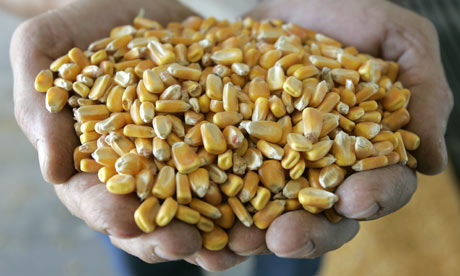The US Environmental Protection Agency wants to boost the ethanol blend in fuels in a misguided bid to cut emissions

When the motor manufacturers are in dispute with the US Environmental Protection Agency, you wouldn't win much for guessing which side I'm likely to be on. But this time you'd be wrong.
The EPA has to decide whether or not to allow more ethanol to be blended with gasoline. At the moment the limit for ordinary motor gas (petrol) is 10%. The agency is inclined to raise this to 15%. The Alliance of Automobile Manufacturers is trying to prevent or postpone it. I'm with the car makers, though not for the reasons they cite; ethanol's effect on a vehicle's performance is not what keeps me awake at night. Since 2004 I've been banging on about the impact of biofuels on the environment and global food supplies, and I've been horribly vindicated. In 2008 the expansion of biofuel production was directly responsible for the decline in global food stocks, which caused grain prices to rise, catalysing famines in many parts of the world. Cereal stockpiles declined by 53m tonnes; the production of biofuels, mostly by the US, consumed almost 100m tonnes, according to a piece in the Economist on 6th December 2007. As the UN's special rapporteur, Jean Ziegler says, turning food for people into food for cars is, "a crime against humanity".
It's also a crime against the environment. In almost all cases, biofuels made from grain or oil crops create more greenhouse emissions than petroleum. This is partly because they lead to an expansion in total crop production, which means that forests must be cut down, unploughed pastures must be tilled and wetlands must be drained to accommodate it. The carbon stored in both the vegetation and the soil is released and oxidised. Two papers in Science (here and here) show that when land clearance is taken into account, biofuels made from grain or oil crops cause a big increase in emissions.
http://www.guardian.co.uk/environment/georgemonbiot/2009/jul/22/biofuels









No comments:
Post a Comment